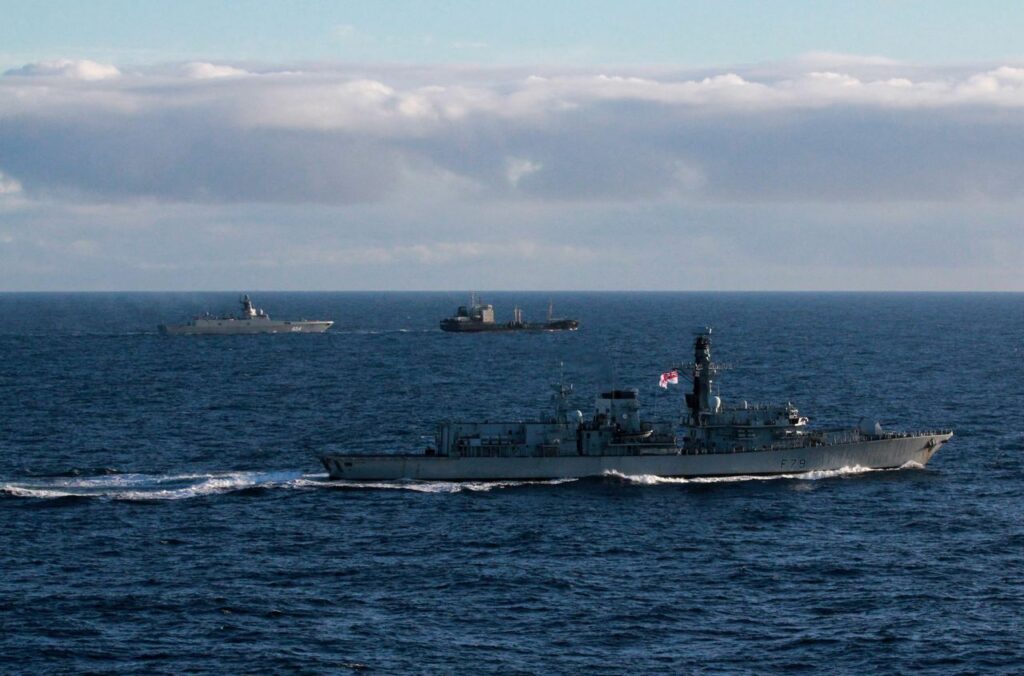The EU High Representative for Foreign Affairs Josep Borrell paid a visit to his South African counterpart, Naledi Pandor, at the end of January for the 15th session of the Ministerial Political Dialogue. During the trip, Borrell asked South Africa to use its "good relations with Russia" to convince it to end its attack on Ukraine.
The discussions during Borrell's visit focused on political and security cooperation on the African continent, multilateral cooperation, trade and economic relations, energy and health. And the war in Ukraine.
Since Russia's offensive into Ukraine, South Africa has been missing from the chorus of voices condemning it. The closest the African country came to calling out Russia was in a statement in which it "regretted" the escalation of tensions and called for peaceful dialogue.
The stance of South Africa was reaffirmed when Pandor responded to a journalist's question on whether she had repeated the call for Russia to withdraw its troops from Ukraine, which was made in February 2022, to Lavrov during his visit – a few days before Borrell's visit. Pandor responded that doing so would be "simplistic and infantile" considering how Ukraine has been supported by NATO countries over the last 11 months.
"Multilateral maritime exercise"
After nearly a year of standing on the back of a neutral policy on the Russian invasion of Ukraine, South Africa has made a decision that has provoked internal and external criticism.
The South African military released this statement: "South Africa will host the Chinese and Russian Federation navies in a multilateral maritime exercise between February 17 and 27." The naval exercise will be called Mosi II and will be held off the coast of the province of KwaZulu-Natal. "Mosi" means "smoke" in Setswana, one of South Africa's eleven official languages.
Apart from the fact that Russia is in the middle of a full-scale invasion of a sovereign country, Mosi II will coincide with the one-year anniversary of Russia's invasion of Ukraine. For many critics, this shatters the idea of neutrality held by South Africa until now.
Lavrov defended the exercises stating that they are not unheard of, with the US conducting them throughout their 200 bases around the world, and more. While he has a point, the timing of these specific exercises is too coincidental not to draw attention.
Historical ties and non-alignment
Understanding South Africa's position would require taking a step back and seeing a bigger picture. Most visibly, South Africa and Russia are two of the countries in the BRICS group: which also consists of Brazil, India and China.
Additionally, South Africans remember Moscow's support of the Liberation Movement in the days of Apartheid. However, the support came from the Soviet Union, of which Ukraine was still a part. Lastly, South Africa has historically held a non-alignment position in foreign policy and with the war in Ukraine seeming like a broader geopolitical conflict between big powers, its history of non-alignment would indicate that it will keep that stance.
"We have always respected South Africa’s traditional non-aligned stance in foreign policy," said Borrell during his visit. "The European Union doesn’t ask Africa to choose sides. We are just asking all the countries in the world to stand on the side of the United Nations Charter. Nothing more. But nothing less."
Pandor, however, in effect declined the invitation for South Africa to join the discussion by saying: "It is not just South Africa or other African countries who should play a role in seeking peace. It is all of us who must work together to seek to arrive at a negotiated outcome that addresses the concerns of all the parties involved."

